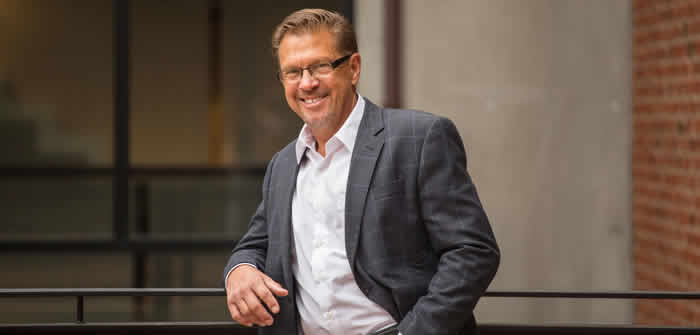Since 2009, Jody Kielbasa’s helped usher the Virginia Film Festival toward a rarefied space in the commonwealth’s culture. Few, if any, programs across the state could result in director Werner Herzog milling around a city’s downtown, stopping into a local bar for a bit of grub.
After a stint at the helm of the Sarasota Film Festival and a few years running VFF, Kielbasa was appointed Vice Provost for the Arts at the University of Virginia in 2013. He recently took some time to answer a few questions about the cultural landscape of Charlottesville.
I think that an education that includes the arts and humanities helps create citizens who have a greater cultural sensitivity. The arts and humanities help enrich people’s lives and help to define who we are as a community and a nation. They also serve to broaden understanding and acceptance of other cultures. Our films, theater, paintings, sculpture, writing, architecture and music have all influenced the world we live in and defined our place in that world. They serve as our window to explore and understand the human condition in a language we can all understand.
Q: You’ve been vice provost for the arts since 2013. What have you worked on that’s had the most impact on Charlottesville?
I have focused a lot of my work on community engagement for our public-facing arts programs at UVa. The Virginia Film Festival, the Heritage Theatre Festival, the President’s Speaker for the Arts, the Fralin Museum of Art, the Kluge-Ruhe Aboriginal Art Collection and the Charlottesville Symphony at the University of Virginia, among others, all have far-reaching impact in our community.
Q: Is there something about one of the theaters or film festivals here that sets it apart from other similar programs across the country?
The VFF’s unique affiliation with the University of Virginia is something that distinguishes it and sets it apart from all other major regional narrative and documentary film festivals. We are, in fact, the only festival of our kind that is a program of a major research institution; the benefits that it brings are important and far reaching. For instance, nearly all of our films are introduced and framed by a scholar who is an expert on the subject of the film, and most are followed by a panel discussion that brings together scholars, filmmakers, journalists and cultural experts who are able to frame and lead dynamic discussions that have become a sort of VFF calling card. Add to all of this the fact that the Charlottesville community delivers a smart, well-educated, enthusiastic and informed audience, and you have a wonderful and meaningful festival experience for all involved.
Q: What’s been your favorite experience as an attendee to one of the local festivals you help administer?
As the director of the VFF, I am always thrilled when we can bring in people who have changed the course of history. Several years ago, we screened “All the President’s Men” at the Paramount Theater and hosted a remarkable discussion with Bob Woodward and Carl Bernstein that was moderated by [former Virginia] Gov. Gerald Baliles.
It was the 40th anniversary of the Watergate scandal and Mark Felt, who was finally revealed after many years to be the famed anonymous source “Deep Throat,” had just passed away. It was the first time that Woodward and Bernstein had been together on stage to publicly discuss this, and there was a collective and communal sense in the theatre that evening that we were all part of something very special.
Source: The Daily Progress

